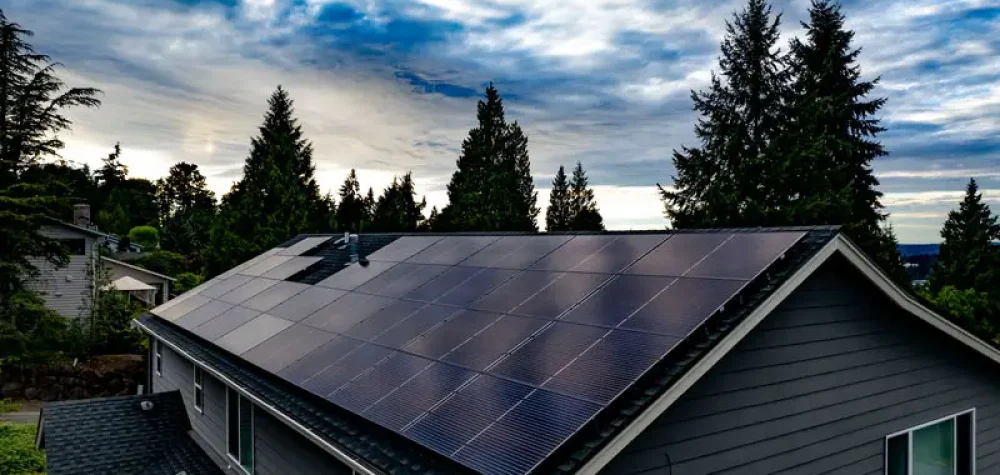Companies like Puget Sound Solar and our clients and homeowners are potentially being sacrificed to serve the interests of the larger players in the industry, some of which are perpetrators of misleading sales practices and short term profiteering – despite having less residential market share nationwide.
A Schism in the Industry
For years, the residential solar industry has been marked by two competing business models. On one side you have locally or regionally based solar installers. These are vertically integrated companies that design, sell, install and importantly, maintain their systems. Their clients purchase the systems outright through financing or cash. On the other side, you have national or multi-state companies that often leverage third party sales organizations or installation partners. These companies use aggressive and often misleading sales tactics, infamously employing armies of door-knockers, sell loan products with large fees, and often sell third party owned (TPO) systems. The division between these two factions in the solar industry is profound, with local installers faulting large companies for the substantial erosion in the trust by the American public. Here in Washington State the solar advocacy group (Washington Solar Energy Industries Association, or WASEIA) successfully championed a Consumer Protection Bill in 2024 that is directly aimed at countering the widespread consumer malpractice occurring locally.
A Tale of Two Tax Credits
While TPO arrangements are not performed here in Washington, they have been gaining market share nationally since the passage of the Inflation Reduction Act. National estimates place TPO at 42% of all residential systems in 2024 (source). Big names such as Sunrun, Tesla, and Vivint sell differing solar financing models where the homeowner does not own the system on their roof and agrees to purchase the power from the system at a set rate. The benefit to consumers of the TPO model is the lower cost of entry into solar energy. Critically, the solar company takes the tax credit on these systems and this credit is the commercial tax credit, known as 48E.
Direct ownership allows the homeowner to take the tax credit, use cheap electricity and build equity in the home. This is the model that allows companies like ours to exist and homeowners in Washington to benefit from household renewable energy systems. This form of ownership employs the residential tax credit, known as 25D. Both 48E and 25D were slated to begin winding down in 2032.
While there are fairly clear lines between the good and bad actors in the industry, not all TPO providers are bad actors, and not all companies primarily selling cash/financed deals are good actors.
25D Sacrificed?
While 25D had been not just tolerated but extended under the Obama, (first) Trump and Biden administrations, all eyes were on the Big Beautiful Bill in the context of ever more tribal politics and an appetite to cut spending to maintain tax cuts. The first version of the House bill slashed 25D at the end of this year – far sooner than many industry analysts expected. 48E was cut later in the final version of the bill that we now see before the senate. In the course of this, it has become evident that few within the industry are advocating for 25D at the national level.
The conversation around these tax credits aligns along some of the same historic fault lines in the industry. Both credits are critical for our transition away from a carbon intensive economy, but 25D is the foundation of residential solar energy that supports local businesses, homeowners and, critically, green jobs. At Puget Sound Solar, an installer/trainee can become a residential electrician making $90,000 – $100,000+ in just over two years.
In the context of the broader fight to keep integrity at the core of the residential solar industry, it is unacceptable that 25D is not being represented nationally as this bill winds through the senate.
Local Action!
WASEIA (disclosure: the author is a member of the WASEIA board) has contracted a federal lobbying firm to provide a voice for 25D. They are focusing on Senators from Idaho, Utah and Alaska, and they are operating on a shoestring budget. If you feel inclined, you can help them raise critical funds here. Finally, If you are reading this blog and happen to live in one of the following districts please reach out to your senators to advocate for both 48E and 25D!
- Idaho, (Senator Crapo)
- Ohio (Representative Moreno, Senator Husted)
- Utah (Senator Curtis)
- North Carolina (Senator Tillis)
- Maine (Senator Collins)
- Alaska (Senator Murkowski)
- Florida (Senator Moody, Senator Scott)
- Kansas (Senator Moran)
- South Carolina (Senator Graham, Senator Scott)
- Texas (Senator Cornyn)
- South Dakota (Senator Thune)
- Louisiana (Senator Cassidy)
- Pennsylvania (Senator McCormick)
Thank you for reading! We will keep you updated in this turbulent time.




